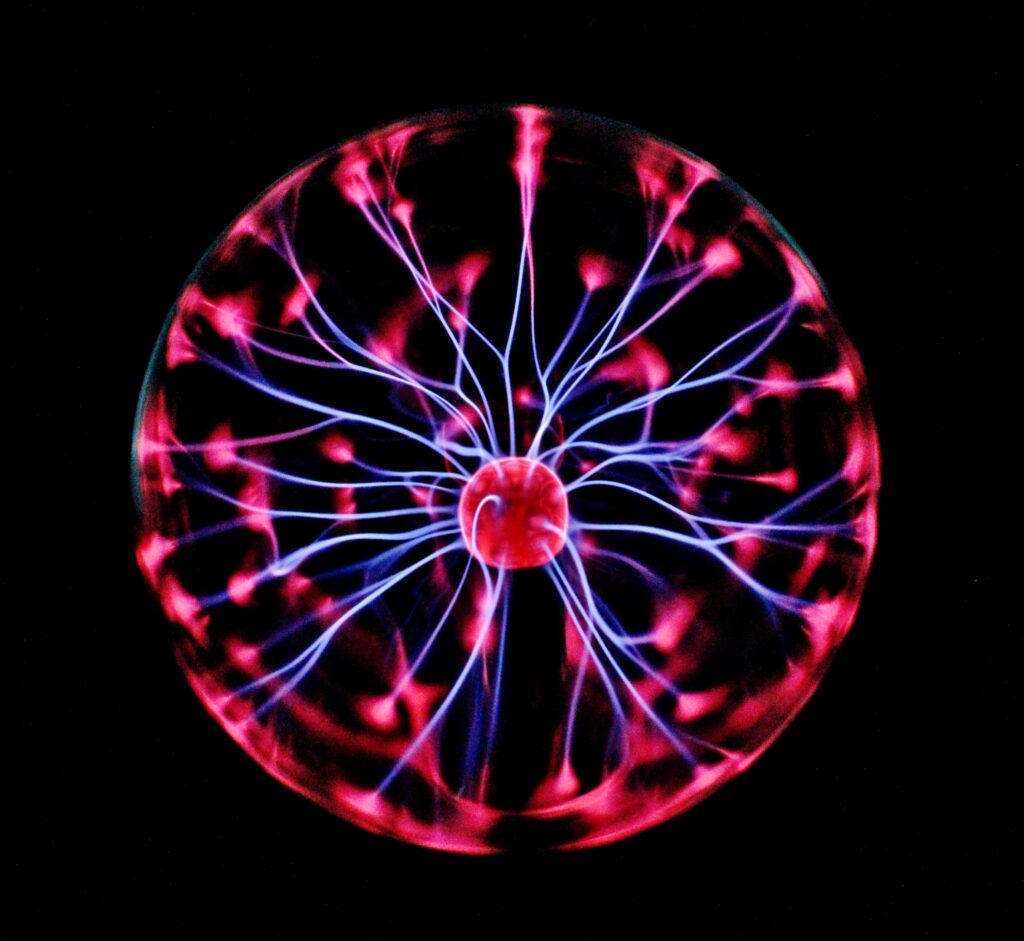Imagine bustling down the city streets at a moderate pace, with the wind in your hair and the freedom to easily navigate through the hustles and bustles. That’s the liberation electric scooters offer. From their convenience to incredible efficiency, electric scooters have become the new cool kid on the block in the world of transportation, challenging the traditional gas-powered vehicles. Get ready to explore the reasons why the electric scooter is a game-changer and why it’s being considered as the future of transportation.

Current State of Transportation
With the exponential growth in global population and urbanization, transportation plays a pivotal role in connecting people, goods, and services worldwide.
Details on current main forms of transportation
Currently, the main forms of transportation in use range from road vehicles (cars, trucks, buses), railways, aviation, to marine transportation. Changing lifestyles and the globalization of economies have led to the dominance of private cars for personal commuting, while public transport and air travel cater to long-distance travel needs. Additionally, within busy, congested city centers, bicycles and traditional scooters have also found their place as viable commuting options.
Issues with current transportation methods
While modern transportation has made life easier and brought the world closer, it is not devoid of issues. A significant problem with today’s transport systems is traffic congestion in urban areas, which results in inordinate delays and increased commute times. Additionally, safety remains a persistent concern with road accidents occurring frequently.
Environmental impact of current transportation
Perhaps the most concerning issue with current transportation modes is the environmental damage they cause. Most private vehicles and public transport buses function on fossil fuels, and their burning emits a huge volume of greenhouse gases into the atmosphere, contributing to global warming and deteriorating air quality. The alarmingly high carbon footprint of transportation urgently calls for more sustainable alternatives.
Introduction to Electric Scooters
To address the concerns with current modes of transport, innovative solutions like electric scooters are grabbing attention.
Brief overview of electric scooters
Electric scooters, as the name suggests, are scooters powered by electricity. They consist of a tiny motor, a battery pack for energy storage, and a throttle for speed control. Unlike traditional scooters, they produce zero tailpipe emissions, making them an environmentally-friendly means of transport.
History and evolution of electric scooters
With roots going back to the early 1900s, electric scooters have come a long way. Technological advances over the years have enhanced the performance, safety, and usability of electric scooters. The real leap came with the advent of lithium-ion batteries, which drastically improved their range and efficiency and led to the recent surge in popularity.
Different types of electric scooters
Modern electric scooters come in various types to cater to different user needs. There are lightweight, foldable models for easy storage and portability, high-performance models for speed enthusiasts, and robust ones for rough terrains. Additionally, e-scooters also come in shared models that people can rent for short duration via mobile apps, popular in many city centers.
Operation and Functioning of Electric Scooters
Delving deeper, let’s explore how electric scooters function.
How electric scooters work
At their core, electric scooters work in a straightforward manner. The battery, when charged, provides electricity to power the motor. As you engage the throttle, it increases the motor’s speed propelling the scooter forward. The more you twist or press the throttle, the faster the scooter moves.
Features and components of electric scooters
Electric scooters consist of basic components like the battery, electric motor, throttle, brakes, and tires. Most modern e-scooters come with added features such as LED displays for speed and battery status, lights for night visibility, suspension systems for comfortable rides, and safety tools like bells and locking systems.
Electric scooters vs traditional scooters
In comparison to traditional scooters, electric ones have lower running costs as electricity is cheaper than gasoline. They have quieter operation and reduced maintenance needs as they have fewer mechanical parts. Most importantly, electric scooters have a lesser environmental impact – a feature they trump conventional scooters by far.
Benefits of Electric Scooters
The booming popularity of electric scooters is not just for their charm, but for the multitude of benefits they offer.
Economic benefits of electric scooters
Electric scooters are a cost-effective mode of transportation. Apart from the initial purchase cost, they require minimal funding. As electricity costs less than fuel, the running cost of an e-scooter is considerably lower. Moreover, with fewer mechanical parts, they require lower maintenance efforts and costs.
Environmental benefits of electric scooters
Electric scooters are a green mode of transportation. They run on batteries and emit no greenhouse gases, reducing the transportation carbon footprint substantially. Moreover, many modern e-scooters are build using recyclable materials, further pushing the sustainability envelope.
Convenience and efficiency of electric scooters
Their compact footprint allows easy maneuvering in crowded places, making them perfect for urban commuting. Moreover, electric scooters are simple to operate, require less physical effort than bicycles, and can be conveniently parked and stored due to their small size.

Electric Scooters and Environmental Sustainability
With the growing emphasis on clean and sustainable living, electric scooters mark an important shift toward greener transportation.
Analysis of how electric scooters reduce carbon footprint
By replacing fossil fuel-powered vehicles, electric scooters contribute significantly to reducing carbon emissions. As they produce zero tailpipe emissions, the more people switch to electric scooters, the greater the reduction in overall carbon footprints.
Use of renewable energy in electric scooters
Electric scooters run on electricity, which can be sourced from renewable sources like wind or solar energy. As we move towards a future powered by clean energy, electric scooters are primed to be an integral part of this transition.
Recyclability and eco-friendliness of electric scooters
Many electric scooters are made from recyclable materials, making them more eco-friendly. Efficient recycling of electric scooters at the end of their lifecycle can further reduce the waste generated.
Reviews and Studies on Electric Scooters
While electric scooters are gaining popularity, let’s take a look at what the research says.
Existing research on electric scooters
Studies indicate that electric scooters are indeed a more sustainable mode of transport compared to cars and public transportation. Research has also shown that they have potential in reducing congestion in crowded cities and can transform urban mobility.
User reviews on electric scooters
User reviews frequently praise electric scooters for their convenience, speed, and low cost. They also highlight their effectiveness in reducing personal carbon footprints and making mobility more sustainable.
Current popularity of electric scooters
Largely driven by younger generations, electric scooters’ popularity is skyrocketing. Cities like San Francisco, Paris, and Berlin have seen an explosion in electric scooter usage, primarily driven by shared e-scooter services.

Impact of Electric Scooters on Urban Mobility
Electric scooters have the potential to fundamentally reshape how we move within cities.
Role of electric scooters in decreasing traffic congestion
By providing a compact, easy-to-use alternative to cars, electric scooters can reduce the number of vehicles on the road, thereby reducing traffic congestion.
Use of electric scooters in commuting
Electric scooters can be an excellent solution for short commute distances, especially for the ‘last-mile’ problem – the final leg of a journey from a public transport hub to a person’s destination.
Integration of electric scooters in public transport systems
Some cities are already integrating electric scooters within their public transport systems, making it easier for commuters to switch seamlessly between different modes of transportation.
Challenges and Drawbacks of Electric Scooters
To fully embrace electric scooters, it’s crucial to address inherent challenges they pose.
Acknowledging some limitations and disadvantages of electric scooters
Electric scooters are not without pitfalls. Their utility decreases over longer distances due to their limited range. Additionally, they may not be suitable for people with certain physical conditions or disabilities.
Public perception and acceptance of electric scooters
While there is a growing acceptance among younger generations, some segments, particularly older demographics, still harbor reservations about using electric scooters.
Safety concerns with electric scooters
Safety issues, such as accidents due to inexperienced riding or lack of helmet use, have raised concerns. Therefore, spreading awareness and caution while using electric scooters is vital.
The Future of Transportation and Electric Scooters
Looking towards the future, electric scooters have a significant role to play.
Forecasting the impact of electric scooters on the future transport sector
There is a strong belief that electric scooters will play an increasingly important role in transforming the transportation sector towards sustainability. Their impact will be particularly noticeable in reducing traffic congestion and serving as an eco-friendly transportation alternative.
Potential growth and expansion of the electric scooter market
The market for electric scooters is projected to grow exponentially in the coming years, driven by advances in technology, increasing environmental concerns, and shifts in mobility patterns.
Technological advancements expected in electric scooters
Future electric scooters may feature improved battery technologies for longer ranges, smarter connectivity for ease of use, and advanced safety features.
Concluding Thoughts: Electric Scooters as the Future
Electric scooters promise a future where commuting is more sustainable and less congested.
Final emphasis on the benefits of electric scooters
In conclusion, the key benefits of electric scooters – reduced environmental impact, economical operation, and convenience – underscore their potential as the next big thing in transportation.
Reflecting on the feasibility of electric scooters being the future
While there are challenges to overcome, the continuing evolution of technology and changing societal preferences point towards a future where electric scooters will play an integral role.
How the transition to electric scooters can be made easier and smoother
Transitioning to electric scooters requires collective efforts. Adequate infrastructure, government incentives, public awareness, safety measures, and integrating them with public transit systems are essential steps to let this transition happen smoothly.
In the end, it’s clear – embracing electric scooters can take us a step closer to a greener, more efficient, and less congested future.




